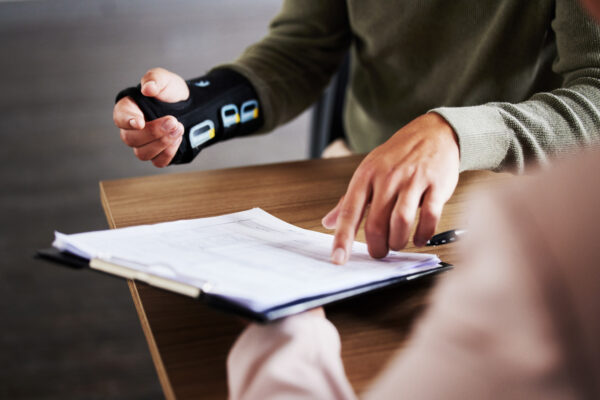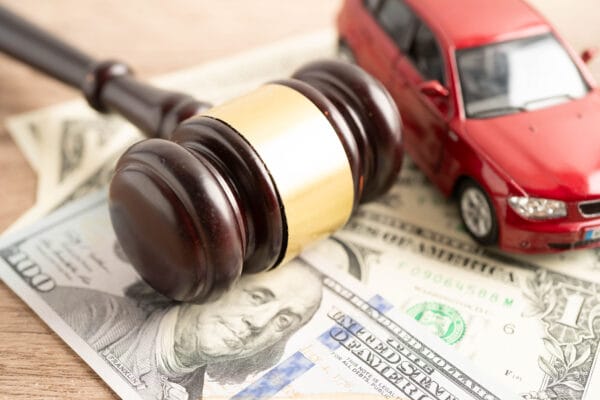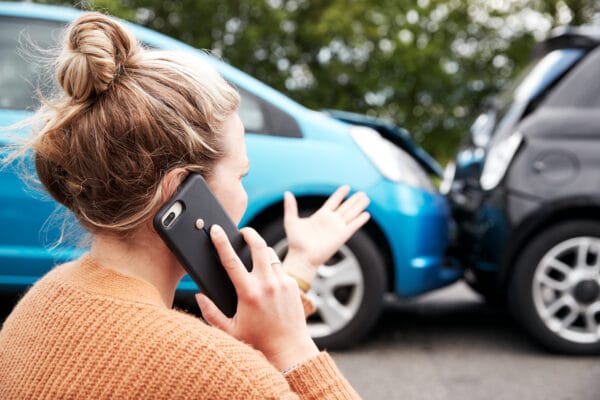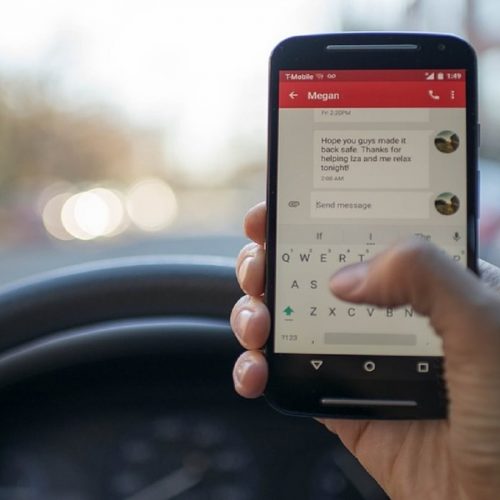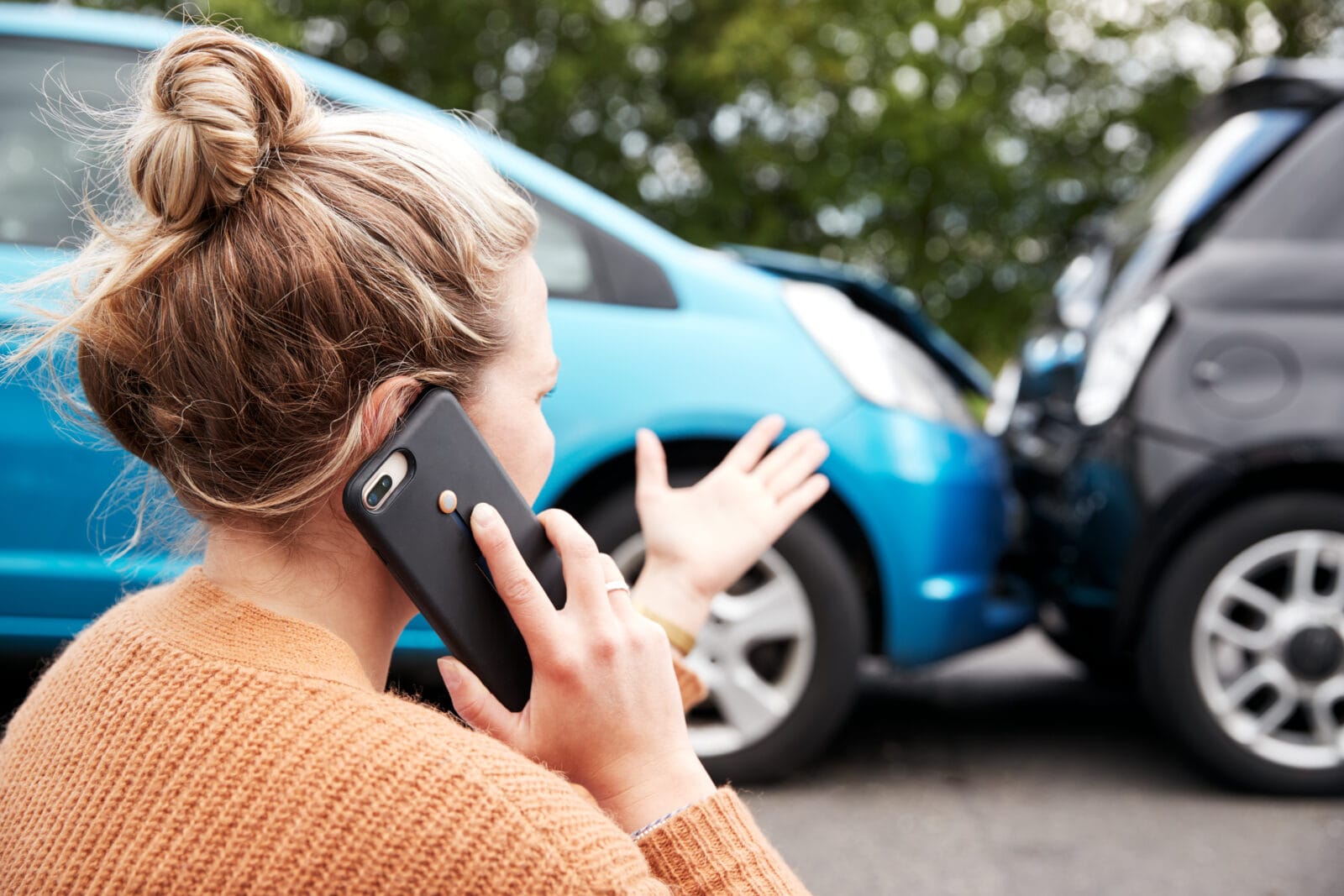
The Short Answer:
After a car accident, the most important thing is to stay calm and focus on safety. Check for injuries, move to a safe location, and call 911. Exchange information with the other driver, document the scene, and report the accident to your insurance company. Even if you feel fine, seek medical attention. Reach out to an attorney who can help protect your rights and your financial future throughout this process.
At Lowry Law, our Maine car accident lawyers help injured drivers across the state understand their rights and pursue full compensation. Below, we outline exactly what to do after a car accident in Maine so you can protect yourself from the very beginning.
Key Takeaways
- Check for injuries and call 911. Safety comes first, so get emergency medical help if anyone is hurt.
- Move vehicles to safety. Prevent further danger by moving your car out of traffic if possible and turning on hazard lights.
- Document the scene. Take photos, gather witness information, and note details like weather, traffic, and road conditions.
- Avoid admitting fault. Stick to the facts when speaking with others or the police. Fault will be determined later.
- Contact Lowry Law. Our team can handle insurance negotiations and protect your rights from day one.
Table of Contents
- 1. Check for Injuries & Ensure Safety
- 2. Call the Police & Report the Accident
- 3. Exchange Information with the Other Driver
- 4. Document the Scene
- 5. Seek Medical Attention
- 6. Notify Your Insurance Company
- 7. Obtain a Copy of the Police Report
- 8. Keep Records and Stay Organized
- 9. Know What Not to Do After a Car Accident
- 10. Contact a Maine Car Accident Lawyer
- Car Accident Aftermath FAQs
- Get the Help You Need After a Car Accident in Maine
1. Check for Injuries & Ensure Safety
Your first priority after a collision is to make sure everyone is safe.
- Check yourself and your passengers for injuries.
- If anyone is hurt, call 911 immediately and follow the dispatcher’s instructions.
- Move your vehicle to the side of the road if it’s drivable and safe to do so.
- Turn on your hazard lights.
If you suspect a serious injury, do not move the injured person unless there’s an immediate risk, such as fire or oncoming traffic.
2. Call the Police & Report the Accident
In Maine, you’re required to report an accident to law enforcement if it results in injury, death, or property damage over $1,000. Having a police report can also strengthen your insurance claim and any future legal action.
When the officer arrives:
- Provide accurate information, but do not admit fault or speculate about what happened.
- Ask how to obtain a copy of the police report for your records.
- If officers are not dispatched, you can file a report later at a local police department or through the Maine Bureau of Motor Vehicles.
3. Exchange Information with the Other Driver
After ensuring everyone is safe, exchange details with the other driver. You’ll need:
- Full name and contact information
- Driver’s license number
- License plate number
- Insurance company and policy number
- Vehicle make, model, and color
If there are witnesses, ask for their names and phone numbers, as their statements can be valuable later.
4. Document the Scene
While still at the accident scene:
- Take photos of all vehicles, visible damage, skid marks, traffic signs, and the surrounding area.
- Record the date, time, and location of the crash.
- Note any weather or road conditions that might have contributed to the collision.
- Use your phone to record short videos or voice notes while details are still fresh.
Thorough documentation can make a major difference in proving fault and securing full compensation.
5. Seek Medical Attention
Even if you feel fine, it’s important to get checked by a doctor as soon as possible. Many car accident injuries (such as whiplash, concussions, or internal injuries) may not show symptoms right away.
Prompt medical treatment:
- Protects your health
- Creates a medical record linking your injuries to the crash
- Strengthens your injury claim
If you experience delayed pain or discomfort, visit a healthcare provider immediately.
6. Notify Your Insurance Company
Most insurance policies require prompt reporting of any accident. When contacting your insurer:
- Provide the basic facts of the accident.
- Avoid admitting fault or providing recorded statements until you’ve spoken with a lawyer.
- Ask how to start the claims process for vehicle damage and medical expenses.
If another driver’s insurance company contacts you, do not give statements or accept settlements without legal advice.
7. Obtain a Copy of the Police Report
Your police report includes important details like:
- Officer observations
- Statements from drivers and witnesses
- A diagram of the accident scene
This report can be helpful when filing a claim or lawsuit. You can request a copy through the local police department or Maine State Police.
8. Keep Records and Stay Organized
Maintain a dedicated folder (digital or physical) for all accident-related materials:
- Medical bills and reports
- Repair estimates
- Correspondence with insurance companies
- Lost wage documentation
Keeping everything in one place makes it easier for your lawyer to build a strong case on your behalf.
9. Know What Not to Do After a Car Accident
Avoid these common mistakes that could harm your health, your insurance claim, or your potential legal case:
- Don’t leave the scene until law enforcement says you can. Leaving prematurely could be considered a hit-and-run, even if the crash seems minor.
- Don’t admit fault or apologize, even casually. Fault is determined after an investigation, and admitting blame too early can be used against you.
- Don’t post about the accident on social media. Insurance companies and opposing lawyers can use your posts to question your injuries or statements.
- Don’t refuse medical treatment. Some injuries take hours or days to appear. Skipping care can endanger your health and weaken your claim.
- Don’t lose your temper or argue with others at the scene. Stay calm and focus on safety and documentation.
- Don’t sign documents from an insurance adjuster without legal advice. Quick settlements often undervalue your losses and close your case prematurely.
- Don’t give recorded statements to the other driver’s insurance company. Their goal is to minimize payouts, so speak with your lawyer first.
- Don’t try to handle everything on your own. A Maine car accident attorney can help protect your rights, deal with insurers, and pursue full compensation.
10. Contact a Maine Car Accident Lawyer
Dealing with insurance adjusters, medical bills, and legal paperwork can be overwhelming, especially while you’re recovering. Our experienced Maine car accident lawyers at Lowry Law can:
- Investigate the cause of your accident
- Collect and preserve evidence
- Handle all communication with insurers
- Seek the maximum compensation available for medical costs, lost income, and pain and suffering
- Represent you if your case goes to court
Our legal team understands Maine’s accident and insurance laws and will fight to ensure you’re treated fairly.
Car Accident Aftermath FAQs
Seek medical attention immediately. Even minor injuries can worsen over time. Follow your doctor’s treatment plan and keep records of all visits and expenses.
Gather as much evidence as possible and contact an attorney. Do not admit fault. Maine follows a modified comparative negligence rule, meaning your compensation could be reduced if you’re found partially at fault.
You must report an accident to the Bureau of Motor Vehicles within 48 hours if it involves injury, death, or property damage exceeding $1,000.
You may still be able to recover compensation through your uninsured motorist coverage or an injury lawsuit. A lawyer can help you explore your options.
In most cases, you have 6 years from the date of the accident to file an injury lawsuit, but some deadlines can be as short as 30 days, so act quickly.
After you file a claim, your insurance company will assign an adjuster to investigate the accident. They’ll review the police report, photos, and witness statements, then estimate vehicle damage and medical expenses. You may be asked for additional documentation before they decide on payment. It’s smart to have a lawyer review any settlement offer to make sure it covers your full losses.
Even if the accident seems small, follow the same basic steps: move to safety, check for injuries, and exchange information. Take photos of the damage, contact your insurance company, and file a police report. Some injuries or damage may appear later, so seek medical attention and keep detailed records just in case you need to file a claim later.
Get the Help You Need After a Car Accident in Maine
Knowing what to do after a car accident is just the first step. Having the right legal team makes all the difference in what happens next. At Lowry Law, we’ve spent decades helping drivers in Portland, Greater Bangor, Lewiston, and across Maine recover compensation after serious crashes. We take on the insurance companies so you can focus on healing, not paperwork or phone calls.
When you work with our firm, you’ll benefit from:
- Personalized attention and care. We treat every case as unique and give you direct access to a dedicated attorney.
- Aggressive insurance negotiations. We know how to counter low settlement offers and push for the full value of your potential claim.
- Proven results for Maine accident victims. Our team has helped countless clients recover compensation for medical bills, lost wages, and pain and suffering.
- No fees unless we win. You won’t pay us anything unless we successfully secure compensation for you.
If you’ve been injured or are unsure what to do after a car accident in Maine, don’t face the process alone. Contact Lowry Law today for a free consultation. Let us protect your rights and guide you every step of the way toward justice and recovery.



